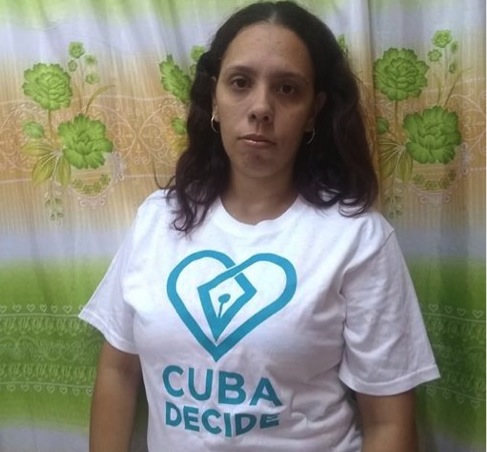
![]() 14ymedio, Yoani Sanchez, Generation Y, Havana, 18 February 2019 – A practice frequently repeated in the raids carried out by Cuban State Security against the homes of activists, opponents and independent journalist is, precisely, the seizure of personal photos and videos. They take away that unique image of a grandmother that sat on a shelf, the snapshot of a grandson’s birthday, and the film of the baby’s first steps in the living room of the house. As if they wanted, by snatching the memories of the past, to leave the person without emotional support and sentimental roots.
14ymedio, Yoani Sanchez, Generation Y, Havana, 18 February 2019 – A practice frequently repeated in the raids carried out by Cuban State Security against the homes of activists, opponents and independent journalist is, precisely, the seizure of personal photos and videos. They take away that unique image of a grandmother that sat on a shelf, the snapshot of a grandson’s birthday, and the film of the baby’s first steps in the living room of the house. As if they wanted, by snatching the memories of the past, to leave the person without emotional support and sentimental roots.
I recall a few years ago talking to a Lady in White who most regretted, among the personal items she lost during a police search of her home in March 2003, the loss of the photos of her wedding. That dawn of the Black Spring, when her husband was arrested, she lost the only images she had of that very special moment when they exchanged rings, cut the cake and kissed in front of the camera. They never returned them to her, although those photos had nothing to do with the accusation leveled by the prosecutor against her husband, who spent more than seven years in prison. continue reading
Now, I read this text by Kata Mojena*, and confirm that last Monday’s raids against several homes of Patriotic Union of Cuba (Unpacu) activists have repeated this same model of repression, the same absurd confiscations of private effects, of family memories and of images that have no value to the police, but are of incalculable importance to a human being. The strategy continues to be the same: take from the person what makes them a person; reduce them to the present; eliminate all those emotional elements that complete them; snatch the testimony of what they can no longer take as a lived experience. In short, take ownership of their history.
Luckily there are now social networks to denounce this immediately and we do not have to wait long years for the world to find out, so the reactions rejecting these activities are heard and the public scorn falls on these “memory thieves” who – from the so many outrages they have committed in the past – have ended up deeply panicked about their own future.
*From Kata Mojena on Facebook: Seeing the photos I have uploaded these last years, has made me feel melancholy because they are the only ones that remain after the assault I suffered. Of course I am not going to forget the disaster they left in my house nor all the information I lost which I had worked on for years, and I will remember with sadness this event every time I want to see videos of my children as babies or my wedding and can’t because they no longer exist. I still have no answer for my older son when he says to me, Mamá those aren’t police they are thieves in disguise, nor for my youngest son when he asks me to put on his favorite cartoons. It pains me greatly that my little sister, 16, remembers with shame how they stripped her naked and searched her like a criminal. But this is true: they did not manage to take my dignity, my decision to fight, my need to live in freedom. They cannot take these because they live in my mind and heart.
Therefore, I join the hunger strike in protest against so much barbarity and the impossibility of campaigning for a No [vote] on that shameful constitution. I had already started it on the first day but my husband explained that they needed me to be strong for other tasks. Now I have finished them. So we are 71 #enhuelgadehambreVsRepresion (on hunger strike vs Repression).
________________________________
The 14ymedio team is committed to serious journalism that reflects the reality of deep Cuba. Thank you for joining us on this long road. We invite you to continue supporting us, but this time by becoming a member of 14ymedio. Together we can continue to transform journalism in Cuba.
